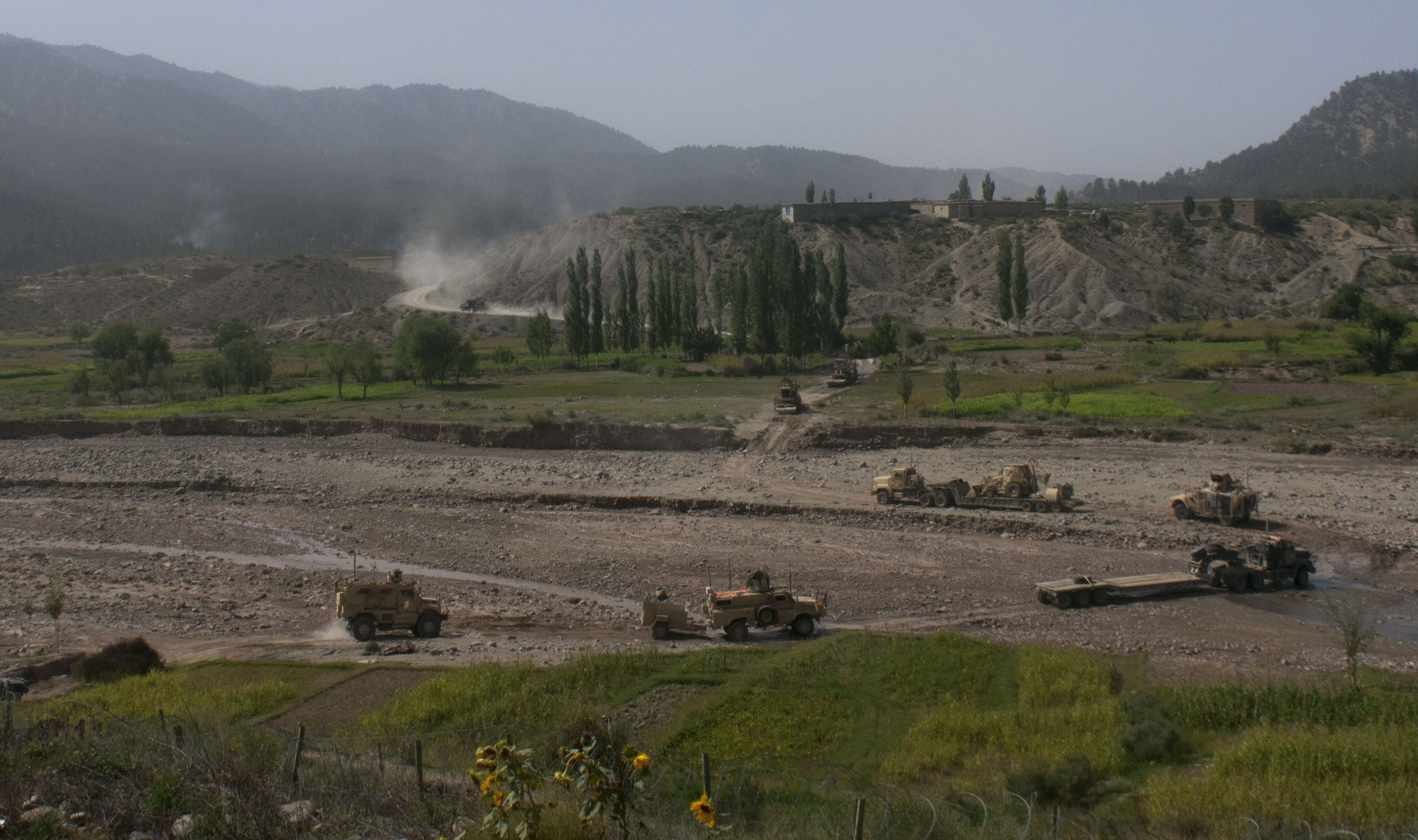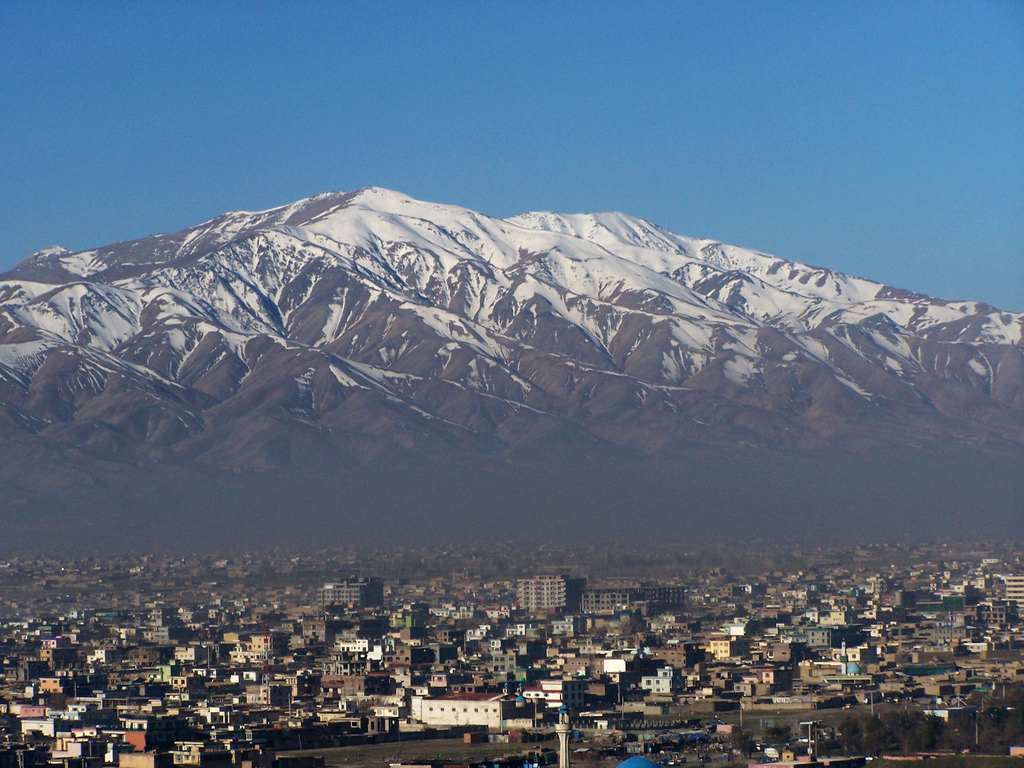|
Sulaimankhel
The Sulaimankhel ( ps, سليمان خېل), or Suleiman Khel, are a Pashtun sub-tribe of the Ghilji tribe of Bettani confederation of Pashtuns, Mostly Nomadic People. In the early 20th century, the tribe was recognised as generally pastoral. History In 1924, the Sulaimankhel joined in the Khost Rebellion initiated by the Mangal tribe. The Sulaimankhel are one of the largest Ghilji Pashtun subtribes. One of the major subtribes of suleman khel living in south Waziristan Tehsil Toi khulla (Gul kach , zarmelan, khan kot) and sultan khel have 9 subcasts (Mir khankhel, kamrani, Ya khel, dinar khel, jalal khel, bas khati, gulwal, zanki, hassan khankhel, these 9 subcasts are also living in dera ismail khan in huge nomber. Like the Ahmadzai Sulemankhel are living in Peshawar and Afghanistan. The Ahmadzais are considered different from Sulemankhel because of their close relationship with Durranis and have inter-marriages between Durranis and Ahmadzais and by not taking part in Ghilj ... [...More Info...] [...Related Items...] OR: [Wikipedia] [Google] [Baidu] |
Paktika Province
Paktika (Pashto/Dari: ) is one of the 34 provinces of Afghanistan, located in the eastern part of the country. Forming part of the larger Loya Paktia region, Paktika has a population of about 789,000, mostly ethnic Pashtuns. The town of Sharana serves as the provincial capital, while the most populous city is Urgun. In 2021, the Taliban gained control of the province during the 2021 Taliban offensive. Geography Paktika sits adjacent to the Durand Line border between Pakistan and Afghanistan. It is bordered by the Khost and Paktia provinces to the north. The western border is shared with the provinces of Ghazni and Zabul. The South Waziristan and North Waziristan agencies are to the east of Paktika, while Zhob District of the Balochistan province of Pakistan borders it the southeast. The Shinkay Hills run through the center of Paktika; Toba Kakar Range runs along the border with Pakistan. The Southern districts are intermittently irrigated and cultivated, the center and north ... [...More Info...] [...Related Items...] OR: [Wikipedia] [Google] [Baidu] |
Khost Rebellion (1924–1925)
The Khost rebellion, also known as the 1924 Mangal uprising, the Khost revolt or the Mangal Revolt was an uprising against the Westernization and modernizing reforms of Afghanistan’s king, Amanullah Khan. The uprising was launched in Southern Province, Afghanistan, and lasted from March 1924 to January 1925. It was fought by the Mangal Pashtun tribe, later joined by the Sulaiman Khel, Ali Khel, Jaji, Jadran and Ahmadzai tribes. After causing the death of over 14,000 Afghans, the revolt was finally quelled in January 1925. It was the first conflict to involve the Afghan Air Force. Background Prior to 1924, the city of Khost had rebelled twice: the first rebellion took place from 1856 to 1857 and was fought by Khostwal and Waziri tribesmen against the rule of Dost Mohammad Khan. The second rebellion took place in 1912 and was a rebellion by the Mangal, Jadran, and Ghilzai tribes against the "rapacity and exactions" of the local governor, and saw Habibullah Khan's r ... [...More Info...] [...Related Items...] OR: [Wikipedia] [Google] [Baidu] |
Ghilji
The Ghiljī ( ps, غلجي, ; fa, خیلجی, Xelji) also spelled Khilji, Khalji, or Ghilzai or Ghilzay (), are one of the largest Pashtun tribes. Their traditional homeland is Ghazni and Qalati Ghilji in Afghanistan but they have also settled in other regions throughout the Afghanistan-Pakistan Pashtun belt. The Khilji dynasty was a dynasty in Delhi Sultanate founded by Jalaluddin Khalji and expanded by Alauddin Khalji who were from Ghilji tribe. The modern nomadic Kochi people are predominantly made up of Ghilji tribes. The Ghilji make up around 20-25% of Afghanistan's total population. They mostly speak the central dialect of Pashto with transitional features between the southern and northern varieties of Pashto. Etymology According to historian C.E. Bosworth, the tribal name "Ghilji" is derived from the name of the '' Khalaj'' () tribe. According to historian V. Minorsky, the ancient Turkic form of the name was ''Qalaj'' (or ''Qalach''), but the Turkic / q/ change ... [...More Info...] [...Related Items...] OR: [Wikipedia] [Google] [Baidu] |
Lodi (Pashtun Tribe)
__NOTOC__ Lodi is a Pashtun tribe from the Ghilji group of Pashtuns. Traditionally, they have also been considered as being part of the Bettani tribal confederacy. The Lodi tribe consists of many sub-tribes, most of whom are now settled in the Tank, Frontier Region Tank, Lakki Marwat and Dera Ismail Khan districts of Khyber Pakhtunkhwa province of modern-day Pakistan. These tribes migrated to their present-day location from around Ghazni (Zabulistan region) in modern-day Afghanistan by crossing the Gomal Pass throughout different times in history. Two tribes among the Lodi ended up establishing their own empires, the Sur tribe established the Sur Dynasty and the Prangi tribe established the Lodi Dynasty. Lohani Lohani, also known as Nuhani, is the largest sub-group among the Lodi tribe. During the final years of the Mughal Emperor Akbar's reign, the Lohani tribes were expelled from their home in Ghazni after coming into conflict with the Sulaimankhel tribe. As a result, the ... [...More Info...] [...Related Items...] OR: [Wikipedia] [Google] [Baidu] |
Kabul Province
Kabul (Persian: ), situated in the east of the country, is one of the thirty-four provinces of Afghanistan. The capital of the province is Kabul city, which is also Afghanistan's capital and largest city. The population of the Kabul Province is over 5 million people as of 2020, of which over 85 percent live in urban areas. The current governor of the province is Qari Baryal. It borders the provinces of Parwan to the north, Kapisa to the north-east, Laghman to the east, Nangarhar to the south-east, Logar to the south, and Wardak to the west. Geography Kabul is located between Latitude 34-31' North and Longitude 69-12' East at an altitude of 1800 m (6000 feet) above sea level, which makes it one of the world's highest capital cities. Kabul is strategically situated in a valley surrounded by high mountains at crossroads of north-south and east-west trade routes. One million years ago the Kabul region was surrounded from south-east between Lowgar and Paghman Mountains ... [...More Info...] [...Related Items...] OR: [Wikipedia] [Google] [Baidu] |
Helmand Province
Helmand (Pashto/Dari: ; ), also known as Hillmand, in ancient times, as Hermand and Hethumand, is one of the 34 provinces of Afghanistan Afghanistan is divided into 34 provinces (, '' wilåyat''). The provinces of Afghanistan are the primary administrative divisions. Each province encompasses a number of districts or usually over 1,000 villages. Provincial governors played a cr ..., in the south of the country. It is the largest province by area, covering area. The province contains 13 Districts of Afghanistan, districts, encompassing over 1,000 villages, and roughly 1,446,230 settled people. Lashkargah serves as the provincial capital. Helmand was part of the ''Loy Kandahar, Greater Kandahar'' region until made into a separate province by the Politics of Afghanistan, Afghan government in the 20th century. The Helmand River flows through the mainly desert region of the province, providing water used for irrigation. The Kajaki Dam, which is one of List of dams and reservoi ... [...More Info...] [...Related Items...] OR: [Wikipedia] [Google] [Baidu] |
Kochi
Kochi (), also known as Cochin ( ) ( the official name until 1996) is a major port city on the Malabar Coast of India bordering the Laccadive Sea, which is a part of the Arabian Sea. It is part of the district of Ernakulam in the state of Kerala and is commonly referred to as Ernakulam. Kochi is the most densely populated city in Kerala. As of 2011, it has a corporation limit population of 677,381 within an area of 94.88 km2 and a total urban population of more than of 2.1 million within an area of 440 km2, making it the largest and the most populous metropolitan area in Kerala. Kochi city is also part of the Greater Cochin region and is classified as a Tier-II city by the Government of India. The civic body that governs the city is the Kochi Municipal Corporation, which was constituted in the year 1967, and the statutory bodies that oversee its development are the Greater Cochin Development Authority (GCDA) and the Goshree Islands Development Authority (GIDA). ... [...More Info...] [...Related Items...] OR: [Wikipedia] [Google] [Baidu] |
Kunduz
, native_name_lang = prs , other_name = , settlement_type = City , image_skyline = Kunduz River valley.jpg , imagesize = 300 , image_alt = , image_caption = , image_flag = , flag_size = , flag_alt = , flag_border = , flag_link = , image_seal = , seal_size = , seal_alt = , seal_link = , seal_type = , image_shield = , shield_size = , shield_alt = , shield_link = , image_blank_emblem = , blank_emblem_type = , blank_emblem_size = , blank_emblem_alt = , blank_emblem_link = , etymology = , nickname = , nicknames = , motto = , mottoes = , anthem = , image_map = , m ... [...More Info...] [...Related Items...] OR: [Wikipedia] [Google] [Baidu] |
Pashtun People
Pashtuns (, , ; ps, پښتانه, ), also known as Pakhtuns or Pathans, are an Iranian ethnic group who are native to the geographic region of Pashtunistan in the present-day countries of Afghanistan and Pakistan. They were historically referred to as Afghans () or xbc, αβγανο () until the 1970s, when the term's meaning officially evolved into that of a demonym for all residents of Afghanistan, including those outside of the Pashtun ethnicity. The group's native language is Pashto, an Iranian language in the Indo-Iranian branch of the Indo-European language family. Additionally, Dari Persian serves as the second language of Pashtuns in Afghanistan while those in the Indian subcontinent speak Urdu and Hindi (see Hindustani language) as their second language. Pashtuns are the 26th-largest ethnic group in the world, and the largest segmentary lineage society; there are an estimated 350–400 Pashtun tribes and clans with a variety of origin theories. The total popu ... [...More Info...] [...Related Items...] OR: [Wikipedia] [Google] [Baidu] |
Wardak Province
Maidan Wardak (Pashto: ; Dari: ), also called Wardag or Wardak, is one of the 34 provinces of Afghanistan, located in the central region of Afghanistan. It is divided into eight districts and has a population of approximately 500,00 The capital of the province is Maidan Shar, while the most populous district in the province is Saydabad District. Wardak is known for one of its famous high peak mountain known as (Shah Folad In 2021, the Taliban gained control of the province during the 2021 Taliban offensive. History During the communist times, the people of Wardak never gave significant support to the communist government. Wardak Province was significant during the Civil War in Afghanistan, due to its proximity with Kabul and its agricultural lands. Hezb-e Wahdat had a significant presence in the area. Most of the area was captured by the Taliban around winter 1995. It remains a major Taliban travel route to Kabul with Maidan Shar a target for terror. The security situati ... [...More Info...] [...Related Items...] OR: [Wikipedia] [Google] [Baidu] |




.jpg)

